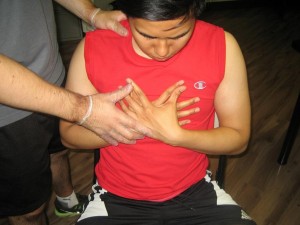Gastroesophageal Reflux Disease (GERD) is a condition where excessive amounts of gastric juices reflux into the esophagus causing symptoms, esophagitis and esophageal mucosal injury. Whenever a person swallows, the lower esophageal sphincter relaxes to allow the food to enter the stomach. This allows minute amounts of gastric to reflux into the esophagus, which is called gastroesophageal reflux (GER).
GERD should not be confused with GER. Whereas GER is physiological, GERD is pathological. GERD is often caused by frequent transient relaxation of the LES, but it can also be excessive acid production and how slow the stomach empties.
https://www.youtube.com/watch?v=9bnIuKiHdDE
Risk Factors of Gastroesophageal Reflux Disease (GERD)
Although GERD can occur to anyone, there are certain factors that increase a person’s risks of developing GERD. These include:
- Obesity
- Constantly eating before bedtime
- Eating large meals
- Pregnancy
- Diabetes
- Hiatal hernia
- Smoking
- Dry mouth
- Certain medications such as, beta blockers, sedatives, bronchodilators, anticholinergics, calcium channels blockers, and tricyclic antidepressants, among others
Symptoms of Gastroesophageal Reflux Disease (GERD)
The symptoms of GERD typically occur at night. Although it is not very painful, it can cause great discomfort to the patient suffering from it. The following are the symptoms associated with GERD:

- Heartburn – most common symptom
- Burning sensation or discomfort behind the sternum
- Radiates towards the mouth in wave-like motions
- Occasional heartburn that can progress to daily occurrence
- Sour taste in the mouth upon waking up
- Hoarseness of the voice
- Coughing
- Wheezing
- In more extreme cases, dental erosion
First Aid Management for Gastroesophageal Reflux Disease (GERD)
GERD is not treated as a medical emergency. It can be effectively treated at home with basic first aid. Although medical treatment is not required, it may still be best to seek medical advice.
- Panicking will only make things work.
- Take Omeprazole, which is a proton pump inhibitor – this is the drug of choice for GERD
- Elevate the head when lying down. If possible, elevate the entire chest area to normalize the flow of gastric juices.
- Avoid bending or stooping positions as this can increase pressure in the abdomen and squeeze the organs
Prevention of Gastroesophageal Reflux Disease (GERD)
The following tips are strongly recommended to reduce chances of GERD:
- For obese individuals, lose weight – this will decrease acid secretion and decrease pressure inside the stomach
- Eat small frequent meals – big meals trigger transient relaxation of the LES and nocturnal reflux
- Do not eat food, except liquids, two to three hours before sleeping.
- Avoid foods that are known to trigger acid reflux, such as, citrus fruits, chocolate, coffee, alcohol, fatty and fried foods, and spicy foods
- Stop smoking as smoking:
- Increases secretion of gastric acid
- Decreases salivary secretion
- Induces reflux
- Do not drink alcohol
- Stimulates gastric acid secretion
- Do not wear belts or clothes that are tight around the waist
Gastroesophageal reflux disease (GERD) happens when excessive amounts of gastric acid refluxes into the esophagus leading to heartburn, among other symptoms.
